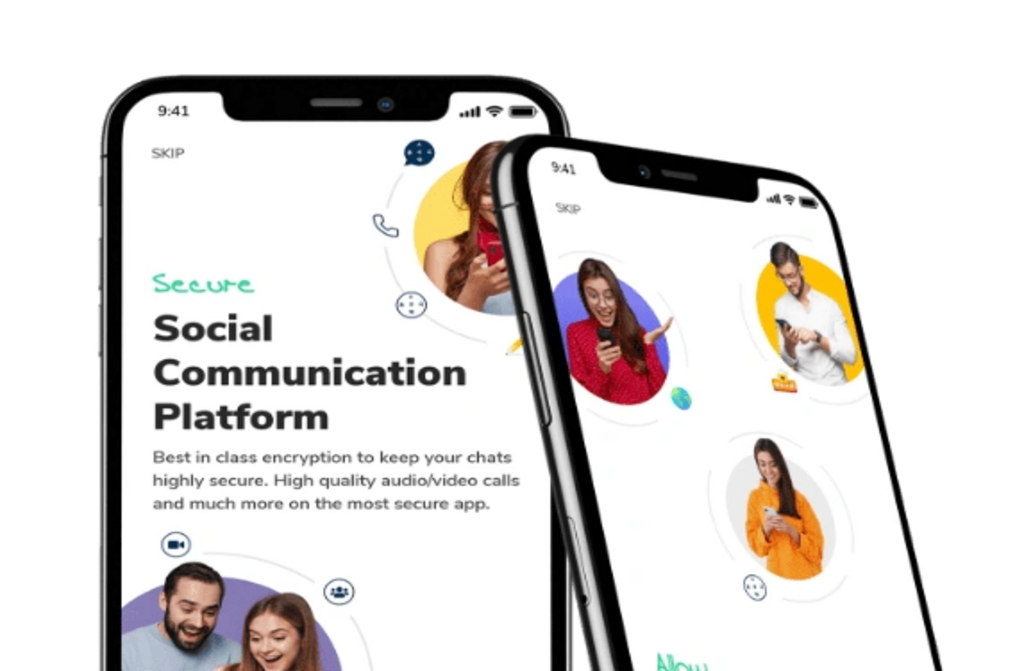The way firms function has been completely transformed by the rise of remote work. Organizations that have personnel in several places mostly depend on secure digital collaboration platforms in order to keep communication and productivity high. This change, nevertheless, also presents serious cybersecurity issues. Cybersecurity in remote work is crucial for protecting sensitive corporate data and preventing cyberthreats like hacking, data breaches, and unauthorized access, especially when using online meeting software.
The Importance of Cybersecurity in Remote Work
Cybersecurity in remote work is crucial as it raises the risk of cyberattacks because of things like unprotected home networks, personal device use, and a lack of IT oversight. Online meeting software is a common target for cybercriminals looking to take advantage of security flaws and obtain private data without authorization. Businesses need to give cybersecurity in remote work top priority as remote work becomes more common in order to protect their data and stay in compliance with industry standards.
According to a Cybersecurity Ventures analysis, by 2025, cybercrime will cost companies more than $10.5 trillion yearly. Businesses need to put strict security measures in place to safeguard their assets as remote and hybrid work environments become more common. A single data breach may result in monetary loss, harm to one’s reputation, and legal repercussions. As a result, it is imperative to secure digital collaboration platform security features and other collaboration technologies.
How Digital Collaboration Platforms Enhance Cybersecurity
To address cybersecurity concerns, secure digital collaboration platforms integrate advanced security measures to protect users and their data. Here’s how these platforms ensure data safety:
End-to-End Encryption
One essential security component that guarantees data confidentiality during transmission is encryption in collaboration software. End-to-end encryption (E2EE) is a feature used by many online meeting software providers to guard against illegal interception of data, video conversations, and messages. This guarantees that the shared information can only be accessed by those who are allowed.
For instance, 256-bit AES encryption is used to safeguard chats on platforms such as Zoom, Microsoft Teams, and Daakia. Encryption in collaboration software ensures that the data is unintelligible without the right decryption keys, even if hackers try to intercept it.
Multi-Factor Authentication (MFA)
MFA increases security by requiring users to utilize multiple authentication methods to confirm their identity. Online meeting software uses biometric information, one-time passwords (OTPs), or authentication apps to verify users’ identities rather than just passwords.
Enabling MFA can stop 99.9% of account compromise attempts, according to Microsoft. To improve security and stop unwanted access, even in the case that login credentials are stolen or disclosed, platforms such as Daakia have introduced multi-factor authentication (MFA).
Role-Based Access Control (RBAC)
Role-based access control is used by digital collaboration platform security features to limit user privileges according to their duties. By giving workers defined responsibilities, administrators can make sure that only authorized individuals may access sensitive data. This reduces the possibility of unintentional data leaks and insider attacks.
Daakia, for example, enables businesses to specify access levels for various users, guaranteeing that only individuals with the appropriate authority can access sensitive data. Businesses that handle sensitive customer data must have this capability.
Secure File Sharing and Cloud Storage
With security features like encryption, access limits, and activity tracking, many online meeting software programs come with integrated file-sharing and cloud storage capabilities. By taking these precautions, how to secure data in remote work becomes more effective, preventing illegal file access and ensuring compliance with data protection regulations.
Cloud storage services like Google Drive, OneDrive, and Daakia’s safe file-sharing platform include cutting-edge security features like audit logs, file versioning, and anomaly detection powered by artificial intelligence. Employees can safely transfer files thanks to this, which also guards against data corruption and illegal access.
Automatic Software Updates and Patch Management
Software flaws are frequently used by cybercriminals to initiate assaults. Security patches and upgrades are frequently released by secure digital collaboration platforms to address problems and bolster defenses against changing threats. Businesses can remain safe from known vulnerabilities by turning on automatic updates.
According to a Verizon report from 2023, unpatched vulnerabilities were responsible for 60% of breaches. Platforms such as Daakia place a high priority on frequent security patches and updates, making sure their software is impervious to online attacks.
AI-Powered Threat Detection and Monitoring
Artificial intelligence (AI) is included in contemporary online meeting software to instantly identify anomalous activity and possible dangers. Artificial intelligence (AI)-powered security systems examine user activity, highlight questionable login attempts, and alert managers to possible security threats before they become more serious.
AI-powered cybersecurity solutions in Daakia, for instance, keep an eye on user access patterns and notify users of any illegal login attempts or any security breaches. Unauthorized access and credential stuffing assaults are less likely with this proactive strategy.
Compliance with Industry Standards
Strict cybersecurity laws, including the General Data Protection Regulation (GDPR), the Health Insurance Portability and Accountability Act (HIPAA), and the National Institute of Standards and Technology (NIST) recommendations, are followed by digital collaboration platforms. Compliance guarantees that companies utilizing online meeting software stay within moral and legal bounds.
To safeguard user data and uphold regulatory compliance, Daakia adheres to international compliance standards. Compliance is a key component of cybersecurity for businesses in highly regulated sectors, including government, healthcare, and finance.
Best Practices for Secure Remote Collaboration
Even though secure digital collaboration platforms improve cybersecurity, in order to reduce risks, organizations and employees must also implement best practices. The following are crucial cybersecurity pointers while working remotely:
- Use Strong and Distinct Passwords: Motivate staff members to generate secure passwords and keep them in password managers.
- Turn on Two-Factor Authentication (2FA): Increase account security by including an additional verification step.
- Watch Out for Fake Attacks: Teach staff members to spot email scams and steer clear of suspicious links.
- Restrict Access to Sensitive Information: Only let workers who require particular information to perform their jobs.
- Employ Virtual Private Networks (VPNs): VPNs encrypt internet connections, which makes data interception more difficult for hackers.
- Monitor and Audit System Activities: To spot and address such threats, examine logs and security reports on a regular basis.
- Provide Cybersecurity Education to Staff: Hold frequent training sessions to make sure staff members are knowledgeable about the most recent security risks and best practices.
The Future of Cybersecurity in Remote Work
The evolution of remote work will lead to increasingly complex cybersecurity vulnerabilities. The incorporation of cutting-edge technologies like blockchain for safe transactions, quantum encryption for impenetrable security, and zero-trust architecture to guarantee ongoing user and device verification is essential to the future of secure digital cooperation.
In order to safeguard remote workers, businesses are also embracing Secure Access Service Edge (SASE) frameworks, which integrate cloud-based services with network security. This strategy enforces stringent security regulations while facilitating easy access to company resources.
Investing in safe online meeting software like Daakia, training staff on cybersecurity threats, and putting strong security procedures in place are all ways that organizations can stay proactive. In this way, companies may benefit from remote labor while protecting their data from online attacks.
Conclusion
Cybersecurity in remote work is a crucial component of modern business operations, and digital collaboration platform security features play a critical role in safeguarding corporate information. Numerous security features, such as encryption in collaboration software, multi-factor authentication, safe file sharing, and AI-driven threat detection, are available in online meeting software.
To reduce risks and keep ahead of cyberthreats, firms must also put best practices into place. Businesses may provide a safe and effective remote work environment that safeguards confidential data and encourages creativity and teamwork by giving cybersecurity top priority.
Businesses cannot afford to be complacent given the speed at which cyber dangers are developing. With platforms like Daakia setting the standard for how to secure data in remote work , businesses can guarantee a secure and effective remote work environment by utilizing the newest security technology and embracing a proactive cybersecurity culture.
If you found this blog helpful, please read our blog on Hybrid Work in 2025: The Role of a Digital Collaboration Platform in Seamless Teamwork? Ready to enhance your remote work security with Daakia? Connect with us today and experience secure digital collaboration like never before!”





